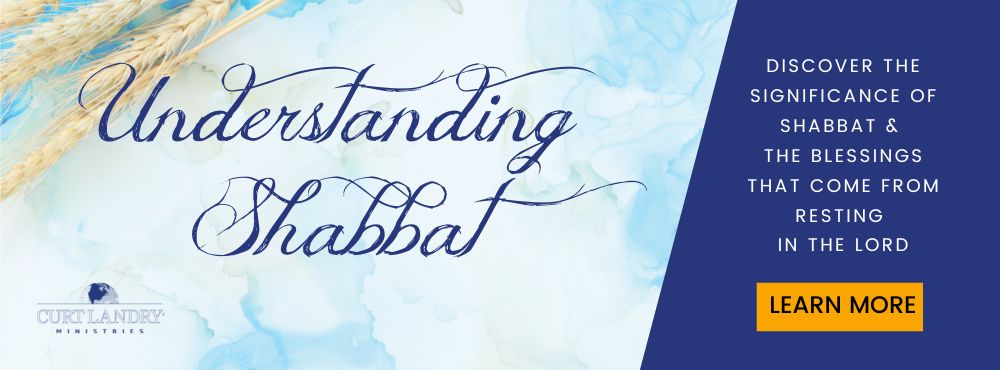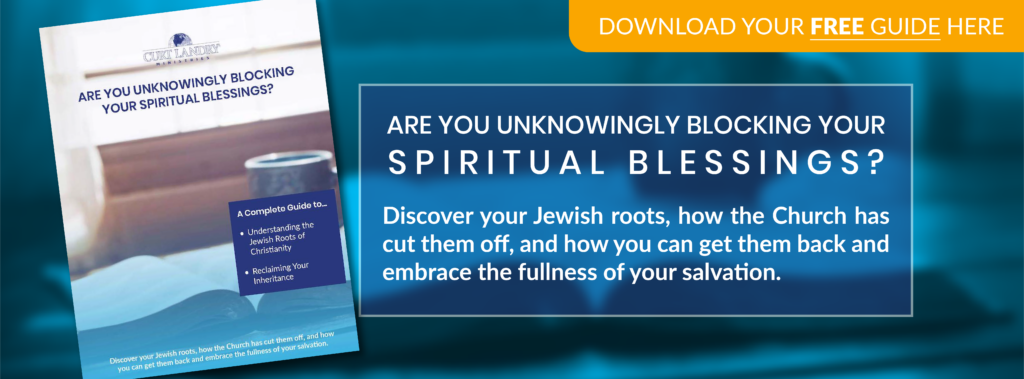Why Did the Sabbath Day Change?
- When Was the Sabbath First Referenced in the Bible?
- God’s Call to Keep and Remember the Sabbath
- First, Define a “Day” in Scripture
- Second, Understand Days and Times Based on the Hebrew Calendar
- Third, Understand Days and Times Based on the Gregorian Calendar
- Did the Sabbath Day Change with the Apostles in the New Testament?
- The Enemy’s Mission to Stop the Great Commission
- The Sabbath Day Change and the Pagan Sun God
- Was the Sabbath Day Change the Only Observance That Shifted?
- What is the Purpose of the Sabbath Day?
- In Summary
The Sabbath day “changed” from being observed on Saturday to Sunday. But in the Bible, the Sabbath is Saturday; God never changed the day. It was always the last day of the week (Saturday), not the first (Sunday).
Through Church history and traditions, the observance of the day changed. We look to the Hebrew and Gregorian calendars to better understand the why behind the Sabbath-day change.
When Was the Sabbath First Referenced in the Bible?
The Sabbath day was first referenced in Genesis 2 and mentioned throughout scripture.
- “And on the seventh day God ended His work which He had done, and He rested on the seventh day from all His work which He had done. Then God blessed the seventh day and sanctified it, because in it He rested from all His work which God had created and made.”—Genesis 2:2-3 (emphasis added)
Exodus 20:8-11 connects the Sabbath day to the day God rested after creating for six days.
- “‘Remember the Sabbath day, to keep it holy. Six days you shall labor and do all your work, but the seventh day is the Sabbath of the Lord your God. In it you shall do no work: you, nor your son, nor your daughter, nor your male servant, nor your female servant, nor your cattle, nor your stranger who is within your gates. For in six days the Lord made the heavens and the earth, the sea, and all that is in them, and rested the seventh day. Therefore the Lord blessed the Sabbath day and hallowed it.’” (emphasis added)
The Sabbath isn’t made up by man but established by God for a purpose (more on this at the end): to be a sign (see Ezekiel 20:12) of who God is and His mercy, grace, and blessing toward man, all pointing to the Messiah and how we are set apart through Him.
As you can see, there is great depth and revelation to the day God set aside, marking the completion of creation.
God’s Call to Keep and Remember the Sabbath
- “‘Remember the Sabbath day, to keep it holy. Six days you shall labor and do all your work, but the seventh day is the Sabbath of the Lord your God…’”—Exodus 20:8-10
In the creation story of Genesis, God rested at the end of His work—not because He needed it but to show the completion of His creative work. The number seven, as shown in the days of the week, symbolizes completeness throughout God’s Word and how we find wholeness and completeness through Yeshua, the Messiah.
God gave us a pattern of how to structure our time: days, weeks, months, and years. Within this structure, He blessed the holy day—the Sabbath.
Rest
Sabbath comes from the Hebrew word Shabbat, which means “to stop,” “to cease,” or “to keep.” It is rooted in God’s rest.
In the Church today, many think of the Sabbath as a day (usually Sunday) or simply a time of rest.
In the modern-day, high-paced world, rest has taken on a new meaning. Some might think of it as something deserved after a grueling work week or a time to indulge the senses. However, this is different from the biblical definition.
God rested by reflecting on His good work. We, as Believers, can enter into God’s rest. When we are restored unto the Lord, we possess the peace of the Holy Spirit that rests upon us and remember that Yeshua is the Lord of the Sabbath.
- “If you are reproached for the name of Christ, blessed are you, for the Spirit of glory and of God rests upon you…”—1 Peter 4:14
- “And He said to them, ‘The Sabbath was made for man, and not man for the Sabbath. Therefore the Son of Man is also Lord of the Sabbath.’”—Mark 2:27-28
Rest on the Sabbath is an opportunity to reflect on the past week and how God has worked through your habits and patterns to reflect Himself. It is an appointed quiet time to renew your mind while asking the Lord to prepare you for the week ahead. God wants you to remember Him all the time, but on the Sabbath, He puts a special emphasis on this. It’s a reflection of the good work He has allowed us to do, which brings Him glory.
Let’s discover why…
- The Church at large observes it on Sunday
- The Sabbath day changed
First, Define a “Day” in Scripture
God gave Israel a way to mark time. A day was from sunset to sunset. Genesis 1 accounts for the day starting in the evening and ending the following evening…
- “God called the light Day, and the darkness He called Night. So the evening and morning were the first day.”—Genesis 1:5
Following this pattern and reading the creation account, we find that the seventh day is the last day of the week. This was the Sabbath.
Can you see how man has changed a “day” from sundown to sundown to midnight to midnight?
Second, Understand Days and Times Based on the Hebrew Calendar
The Hebraic, or Jewish, calendar is based on the Earth’s rotation around its axis (one day), the moon’s rotation around the Earth (a month averaging 29 ½ days), and the Earth’s rotation around the sun (a year, which is 365 ¼ days). It is established using both lunar and solar cycles.
Because the rotations are slightly longer than the observed Gregorian calendar, holidays and festivals do not always appear at the same time on its calendar. They do, however, fall on the same days each year according to the Hebraic calendar.
Also note that on the Hebrew calendar, feast celebrations are observed from sunset the day before the holiday to sunset the day of the holiday. This is why a “day-long” feast appears on the Gregorian calendar as two days.
On the Hebrew calendar, the start of a new month coincides with the appearance of a new moon. Rosh Chodesh is the first day of the month and is celebrated. Paul talks about observing the new moon…
- “So let no one judge you in food or in drink, or regarding a festival or a new moon or sabbaths, which are a shadow of things to come, but the substance is of Christ.”—Colossians 2:16-17
Paul isn’t telling us not to observe these moments but rather to observe and celebrate God’s appointed times, Rosh Chodesh and the Sabbath, with Yeshua the Messiah in mind, not out of legal obligation but as a form of worship.
The theme of worshiping and feasting is sprinkled throughout each day, week, month, and year. God graciously gives us these times of celebration and rest!
Third, Understand Days and Times Based on the Gregorian Calendar
The Gregorian calendar, also known as the Western or Christian calendar, is most often used today. It was named after Pope Gregory XIII in 1582. The Gregorian calendar differs from the Hebraic calendar.
A day is based on the Earth’s rotation around the sun (remember this “sun” reference for later), and the months have no connection to the moon.
Sadly, because of replacement theology, the new month isn’t observed in any special way. And the Sabbath day was switched from Saturday to Sunday.
Did the Sabbath Day Change with the Apostles in the New Testament?
No. Jesus and His apostles observed the Saturday Sabbath.
Nowhere in the Bible is there an account of the Sabbath day change. So then, it must have occurred later.
The Enemy’s Mission to Stop the Great Commission
Remember, there is always a spiritual battle behind everything that manifests in the physical realm.
Jesus sent the disciples to “Go and make disciples of all nations.” As you can imagine, the enemy wanted to stop this good news and heavenly mission from spreading. So, he used many pagan nations and cultures to introduce new ideas and practices into the Church. The mixture started to take place.
In the second and third centuries, many Jewish customs practiced and observed by Jesus and the first followers were attacked and banned. One of these observances was the Sabbath.
At the Council of Nicaea in 325 AD, the Roman Emperor Constantine and the Catholic Church established Sunday as the day of rest. These leaders wanted to remove any Jewishness from Christianity.
By 365 AD, it became illegal to observe or cease working on the seventh-day Sabbath.
Sadly, in the fourth century, more leaders in the Church continued to establish rules and regulations to separate the Church from her roots. They wanted to erase the connection between the Jewish Jesus and Christianity. The result was a separation from blessings and an emergence of replacement theology.
Painting a False Picture of God’s Love
The enemy has cunningly partnered the anti-Semitic spirit with a replacement theology spirit. What many do not see about replacement theology is that it portrays God’s love as inconsistent, no longer applying to the Jewish people. The spirit of anti-Semitism is behind this theology because it goes against God’s Word and plans and paints the picture that He is a liar.
As a result, the Church has been cut off from her blessings, one of which is her authority in today’s cultures.
Many are unknowingly operating out of Hellenistic and pagan mindsets because of its infiltration in the early centuries of the Church.

The Good News | God Does Not Change, and His Word Will Never Pass Away
The good news is…
- The Lord is unchanging. “‘For I am the Lord, I do not change; therefore you are not consumed, O sons of Jacob.’”—Malachi 3:6
- His Word does not pass away. “‘Heaven and earth will pass away, but My words will by no means pass away.’”—Matthew 24:35
- He will use all of this changing for a greater purpose. “And we know that all things work together for good to those who love God, to those who are the called according to His purpose.”—Romans 8:28
- The Spirit of God is being poured out in these last days. “‘“And it shall come to pass in the last days, says God, that I will pour out of My Spirit on all flesh; your sons and your daughters shall prophesy, your young men shall see visions, your old men shall dream dreams.”’”—Acts 2:17
In God’s divine sovereignty and grace, many are heeding the Spirit’s leading to connect to the roots of their faith, claiming the blessings and authority that were seemingly lost. The traditions of man are no longer deceiving them.
- “‘For laying aside the commandment of God, you hold the tradition of men—the washing of pitchers and cups, and many other such things you do.’”—Mark 7:8
The Sabbath Day Change and the Pagan Sun God
As discussed, the Sabbath shifted from Friday/Saturday to Sunday, the day to honor the pagan sun god, Ra.
Remember the “sun” reference from above? If you recall, the ninth plague in Egypt was darkness falling upon all the land. Ra, the sun god, was the most worshiped Egyptian god, giving sunlight. Moving the Sabbath day to Sunday eased many Gentiles’ transition to accepting Constantine’s newly preferred religion. It became a mixture more easily consumed by the pagan nations to accept the newly legalized Christianity.
Was the Sabbath Day Change the Only Observance That Shifted?
No, the Sabbath day change wasn’t the only shift. Easter (the name originating from a spring festival celebrating rebirth and fertility) replaced Passover, and the Fall Feasts were forgotten.
This separation directly contradicts Paul’s point in Romans 11 and Ephesians 2.
- “…if some of the branches were broken off, and you, being a wild olive tree, were grafted in among them, and with them became a partaker of the root and fatness of the olive tree, do not boast against the branches. …remember that you do not support the root, but the root supports you.”—Romans 11:17-18
- “Therefore remember that you, once Gentiles in the flesh… that at that time you were without Christ, being aliens from the commonwealth of Israel and strangers from the covenants of promise, having no hope and without God in the world. But now in Christ Jesus you who once were far off have been brought near by the blood of Christ.”—Ephesians 2:11-13
What is the Purpose of the Sabbath Day?
- “‘Remember the Sabbath day, to keep it holy. Six days you shall labor and do all your work, but the seventh day is the Sabbath of the Lord your God. In it you shall do no work: you, nor your son, nor your daughter, nor your male servant, nor your female servant, nor your cattle, nor your stranger who is within your gates. For in six days the Lord made the heavens and the earth, the sea, and all that is in them, and rested the seventh day. Therefore the Lord blessed the Sabbath day and hallowed it.’”—Exodus 20:8-11
At first glance, the word Sabbath seems to be a day of the week. However, there is a deeper Hebrew meaning behind the word. In this passage, the Lord instructs that for six days, we are to “labor” and “do all work.” In Hebrew, the word for labor (or serve) is avad. The word for “do all work (or business)” is melakah.
This means the Sabbath follows a six-day period of serving and doing business. We are meant to work. In fact, the Lord designed us for a purpose and to work for His Kingdom.
- “Then the Lord God took the man and put him in the garden of Eden to tend and keep it.”—Genesis 2:15
- “And whatever you do, do it heartily, as to the Lord and not to men, knowing that from the Lord you will receive the reward of the inheritance; for you serve the Lord Christ.”—Colossians 3:23-24
- “For we are His workmanship, created in Christ Jesus for good works, which God prepared beforehand that we should walk in them.”—Ephesians 2:10
The Sabbath day is not about laziness or doing nothing. In Hebrew, Shabbat, or shavat, comes from the root word shav, which means to turn and “press in” to the tent or house. In other words, we are to cease our normal activities and business and return to the Lord—pressing into the tent, house, or tabernacle—and be with Him.
Furthermore, this is a picture of the deep love and covenant relationship the Lord longs to have with us. We are not to observe out of legalism but in response to the covenant.
- “‘“Therefore the children of Israel shall keep the Sabbath, to observe the Sabbath throughout their generations as a perpetual covenant. It is a sign between Me and the children of Israel forever; for in six days the Lord made the heavens and the earth, and on the seventh day He rested and was refreshed.”’”—Exodus 31:16-17 (emphasis added)
So then, the purpose of the Sabbath is to turn from regular activities and set aside time to return and press into our Covenant Creator, Lord, and King. We are to come into His presence—the dwelling place, the tent of meeting.
This aligns with what Jesus said in Mark 2:27-28: “The Sabbath was made for man, and not man for the Sabbath. Therefore, the Son of Man is also Lord of the Sabbath.” Jesus is saying that the Sabbath day is to remember our covenant with Him and be renewed in His presence.
In Summary
The Sabbath day, according to scripture, is the seventh day of the week—sunset Friday to sunset Saturday. There is no reference in the Bible that it is to be Sunday. However, many Believers observe it on Sunday.
The roots of the Sabbath day change go back to the first few centuries of the early Church when leaders wanted to remove the “Jewishness” from Christianity. Remember, there is always a spiritual battle behind everything manifested in the physical world. Satan wants to change our perception and understanding of God.
This removal of roots impacts how many view the Lord, His Word, and His covenant with Israel. Furthermore, it impacts the authority of the Church in today’s world.

